https://www.codecademy.com/learn/paths/code-foundations
Content
1. Code Foundations: Introduction
2. Learn How to Code : Baics of Programming
3. Computer Science
4. Web Development
5. Data Science
1. Code Foundations: Introduction
2. Learn How to Code : Baics of Programming
- programming ? giving a set of instructions to a computer to execute.
- Programming is the mental process of thinking up instructions to give to a machine (like a computer).
- Coding is the process of transforming those ideas into a written language that a computer can understand.
Variables
data types
- Primitive data types: num, string, boolean
"num"-> string
Operators
Functions
- sequence of task
- Parameters and arguments are both inputs to a function.
Parameters refer abstractly to a function’s inputs
arguments are the actual values inputted
Control Flow
- Control flow : the order in which instructions are executed.
- conditional, loop, exception
Lists
- list : ordered sequence of information
loops
- structure in programming where the instructions are written once, but a computer can execute them multiple times
- for / while
3. Computer Science
- Programming is the act of telling a computer what to do
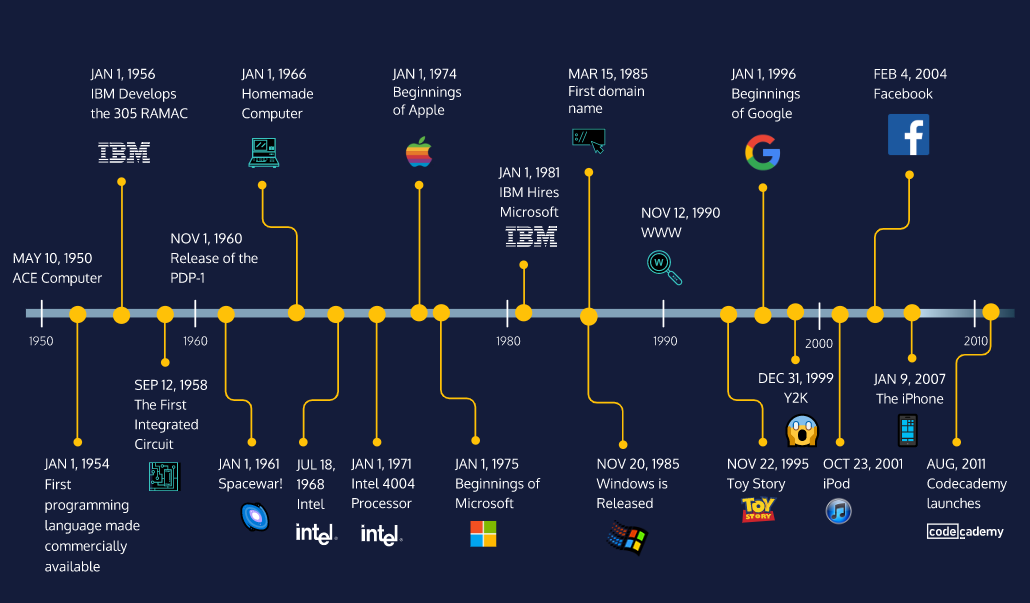
Computer Science
- Algorithms : sequential. conditional, generalizable.
- A function : a specific set of repeatable instructions that takes an inputand produces an output
- Optimization
- Abstraction
careers in CS
- DevOps Engineer : deploying and maintaining existing software. making automated systems to deploy code and bringing organizational changes that increase collaboration between development and operations teams
Machine Learning Engineer
Robotics Engineer
Quantum Computing Researcher
4. Web Development
front / back-end
Browsers and Servers
-
browswer : initiates a requests to the server and renders websites files
-
server: stores data and send to the browser upon request
-
HTTP : standard role for B~S to transfer data
-
The server is the device or program in that network that waits for incoming requests and sends back data.
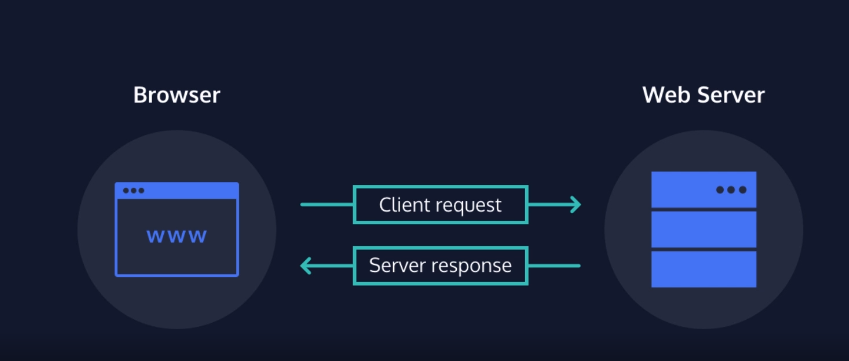
-
HTTP : protocol used for communicate betw. browser - server to transfer data
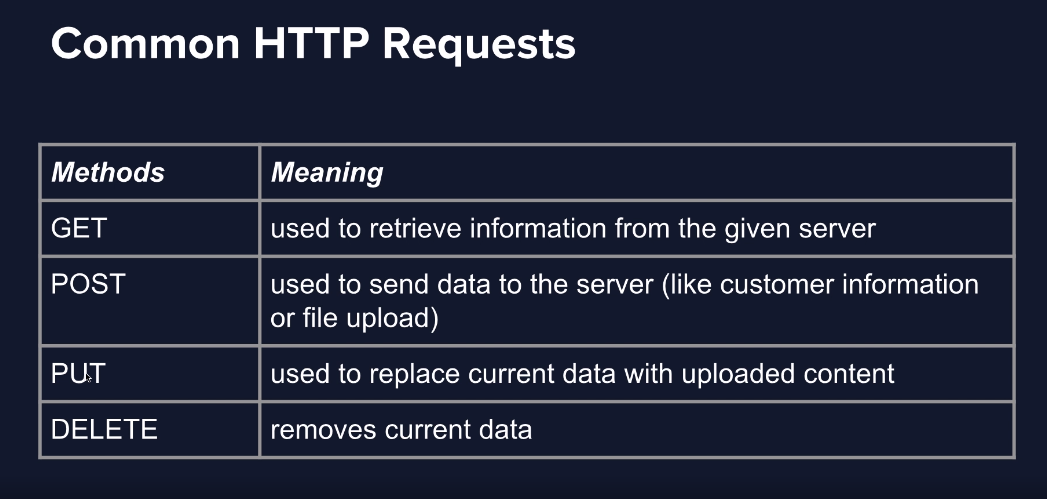
HTTP statuses
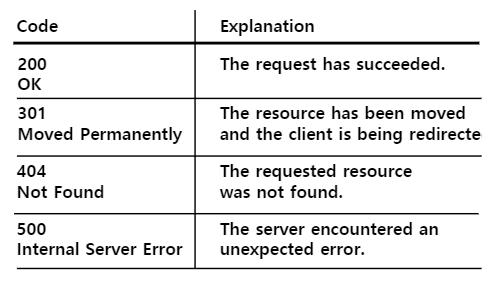
languages
HTML — structures website content
CSS — applies styling to websites
JavaScript — adds interactivity to websites
SQL — allows your web application to store and retrieve data
5. Data Science
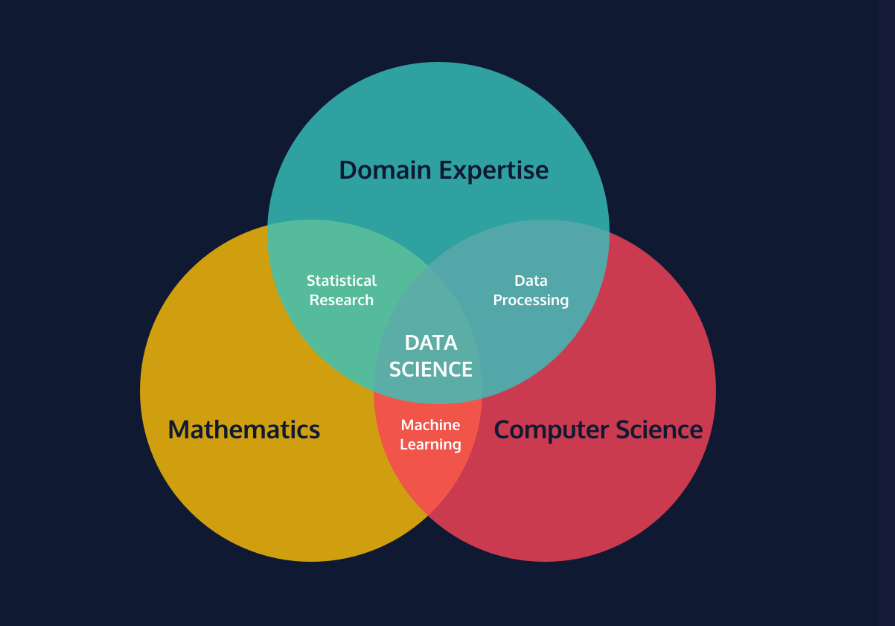
Statistics
- the practice of applying mathematical calculations to sets of data to derive meaning
- Descriptive statistics describe a dataset using mathematically calculated values
- inferential statistics are statistical calculations that enable us to draw conclusions about the larger population
Probability
- mathematical study of what could potentially happen
- data science, probability calculations are used to build models
Programming
Domain Expertise
- particular set of knowledge that someone cultivates in order to understand their data
Data Science Process
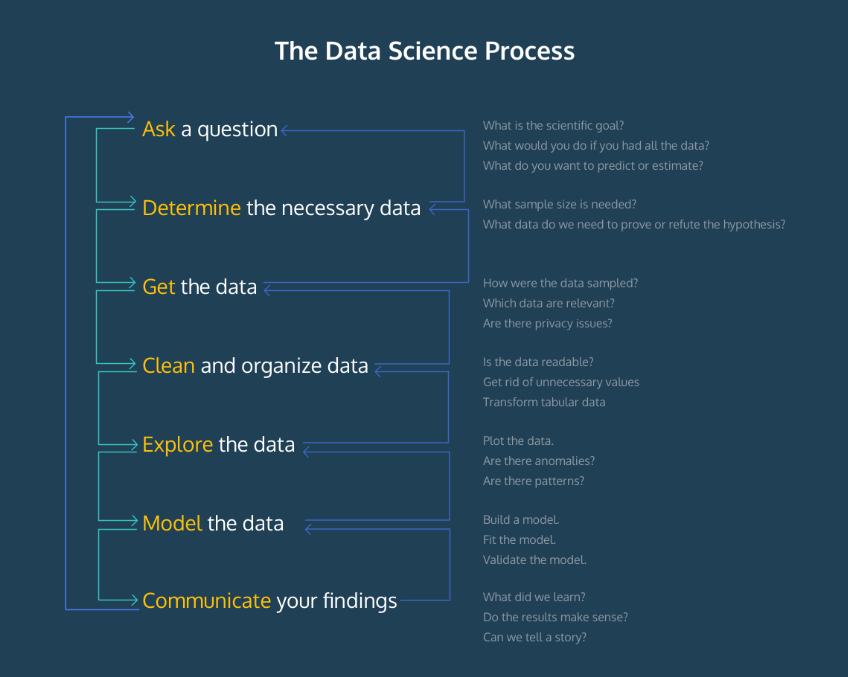

This is a great overview of Codecademy’s Career Path for Code Foundations. Building strong fundamentals is crucial for developing secure, efficient, and maintainable code. As developers advance, ensuring code quality through thorough reviews becomes increasingly important. Partnering with a reliable code audit company can help identify potential issues, improve performance, and maintain high standards across projects.